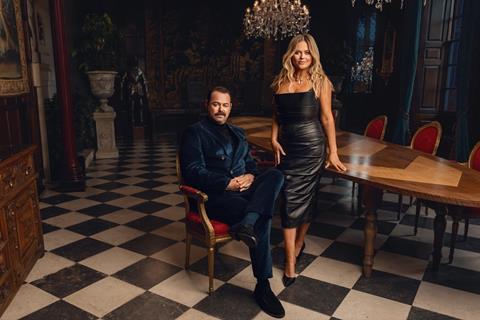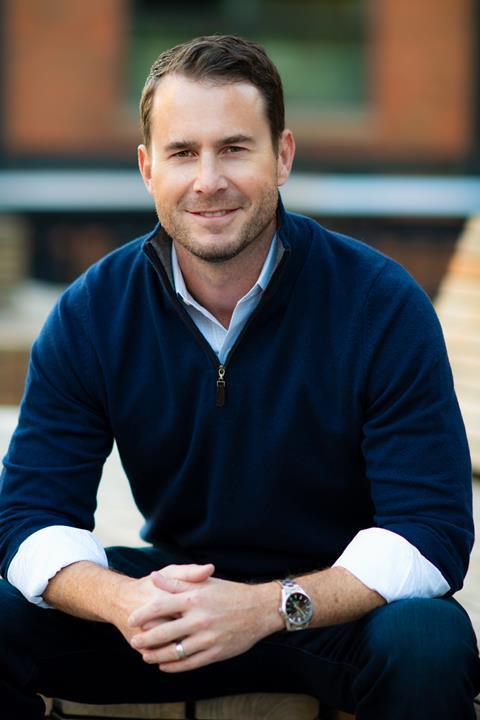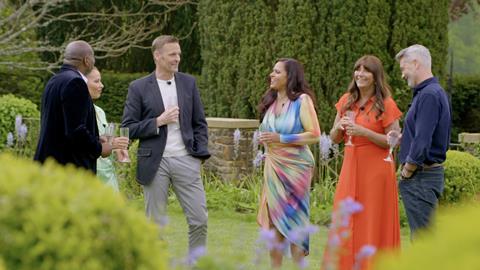David George explains why Nobody’s Fool is headed to the UK’s ITV rather than a development deal with a US broadcaster

The transatlantic creative team behind forthcoming ITV1 reality quiz format Nobody’s Fool eschewed a development deal with a US broadcaster to maximise its rights position in the emerging “brand battle” of the global content business, ITV America chief David George has revealed.
Nobody’s Fool was announced over the summer and is a co-production between ITV Studios-backed US indie Nobody’s Hero, ITVS’s UK outfit Lifted and ITVA.
The UK original, which is being hosted by Rivals stars Danny Dyer and Emily Atack, will see 10 UK contestants come together to stay in a ‘smart house’, where they take part in challenges to convince others they are more intelligent than they might actually be.

Contestants also take part in daily individual quizzes to build a group prize pot, and across the series, players must determine who is the weakest amongst them and eliminate them.
Nobody’s Hero devised the concept and although the label is run by Brits and former Tiger Aspect colleagues Christopher Potts and Jonty Nash, the model that saw it land with ITV in the UK first - rather than with a US buyer - is unusual, even in today’s globalised world.
George said the series was pitched to US and international broadcasters “concurrently”, but that “ultimately, there was going to be a better rights position” launching Nobody’s Fool in the UK.
“There was mutual interest at the same time from a US broadcast network and ITV,” he said. “Both were development offers. We looked at what would be the better route for the concept, and everybody determined it was better through ITV.
“When you go down the development route you just never know but that’s the interesting thing now, for US companies in particular. Traditionally, we would always take a US commission and for a long time, US companies never really cared about rights positions because the budgets were so big and the margins so good.
“Now, US broadcasters are clearly looking to bring down their budgets. These shows are not going to be as profitable as they once were for production companies, so you have to look at things differently.”
For ITV, Love Island UK producer Lifted has been brought on board because “when it came to producing and getting into the weeds of developing” for UK, a local company was deemed beneficial.
Devising the rights model was helped, in part, by the overall deal that ITVS set with Nobody’s Hero back in 2020. The splits in terms of ownership and fees, George explained, are compensated in Nobody’s Hero’s ITVS arrangement, which was agreed because the super-indie viewed Potts and Nash as “international format creators with an ambition to sell both in America and abroad”.
There is a “level of ownership”, George added, for the Nobody’s Hero execs, as well as ITVA/ITVS and Lifted, with the format set to be launched at Mipcom later this month via ITV Studios.
“All three are incentivised to make it a hit, grow it, and sell it around the world,” George said. “That’s the overall ambition: you want to make sure if you’re launching a piece of IP there is upside for everyone, not just in a single production.”
He added: “In a perfect world, the show will go well in the UK, generate interest and ITVS will shop it out. We’re already having conversations about bringing it into the US on the heels of [UK] success. The Heroes will be across that, alongside us.”
MORE NEWS
Culture secretary considering hybrid funding for the BBC
Keith Le Goy: Unpacking Sony Pictures Television’s strategy for growth
The long-standing ITVA chief was speaking to Broadcast shortly before he was appointed to the top role leading all of ITV Studios’ US operations, combining scripted unit ITV Studios America with his unscripted division under the ITVA banner.
In a hyper-competitive market, George added, producers of all sizes – including, increasingly, US companies used to a lucrative domestic market – are being more combative with their creative arsenals for the forthcoming fight in the global producing arena.
“Production has always been a commodity, with a price tag, margin and profitability associated, but the skillset of making content is changing, and AI is only going to accelerate a lot of this,” he said.
“People can make content at home and get millions of views, AI is probably going to [alter] the entire landscape, and so it becomes much more of a brand battle than a production battle moving forward. It’s about how you are monetising your brands.
“You must accept that budgets will come down, but the value of what you’re creating should come back to you, because you’re creating brands.”
Streamers’ model behaviour
As the buying landscape has evolved and consolidated, with commissioners operating on a “global level anyway”, the myriad deals to be made are offering greater opportunities for businesses like ITVA/ITVS, for which formats remain a “linchpin”.

Some shows, George noted, would need to be made in the US based on creative and talent factors, but some “can be produced anywhere, so when that’s possible, there’s going to be different parameters around things like price point and rights positions”.
George said the deal for Nobody’s Fool apes the model ITVA crafted for dating format My Mum, Your Dad, which was created by Greg (The Office) and Haley Daniels for HBO Max.
The Warner Bros Discovery streamer at the time was focused on growing out its business in the US and did not have a presence in certain other key territories – such as the UK – enabling more flexibility on rights positions, although this was not the only reason.
“They were being flexible on it because there was another buyer,” George added. “The other buyer was a global platform that takes all rights completely – that narrows down the list.
“Because it was competitive, it made HBO Max [more flexible] at the time, [aided by the fact] it was not global. It was better going to a smaller platform at the time versus potentially a bigger global service because they gave us a better rights position.
“I would go a step further: that’s why Love Island ended up on Peacock. There were other bigger streamers in pursuit, but Peacock – even if it wasn’t, probably, the strongest of platforms – came at Love Island with a much better deal.
“We’re trying to generate value and create hits. A lot of the time, it’s not always the biggest places that are going to give you those best deals.”







![YLYL_KV_JP19 (c)Nippon TV[13]](https://d11p0alxbet5ud.cloudfront.net/Pictures/100x67/2/5/5/1473255_ylyl_kv_jp19cnippontv13_817911.jpg)
No comments yet